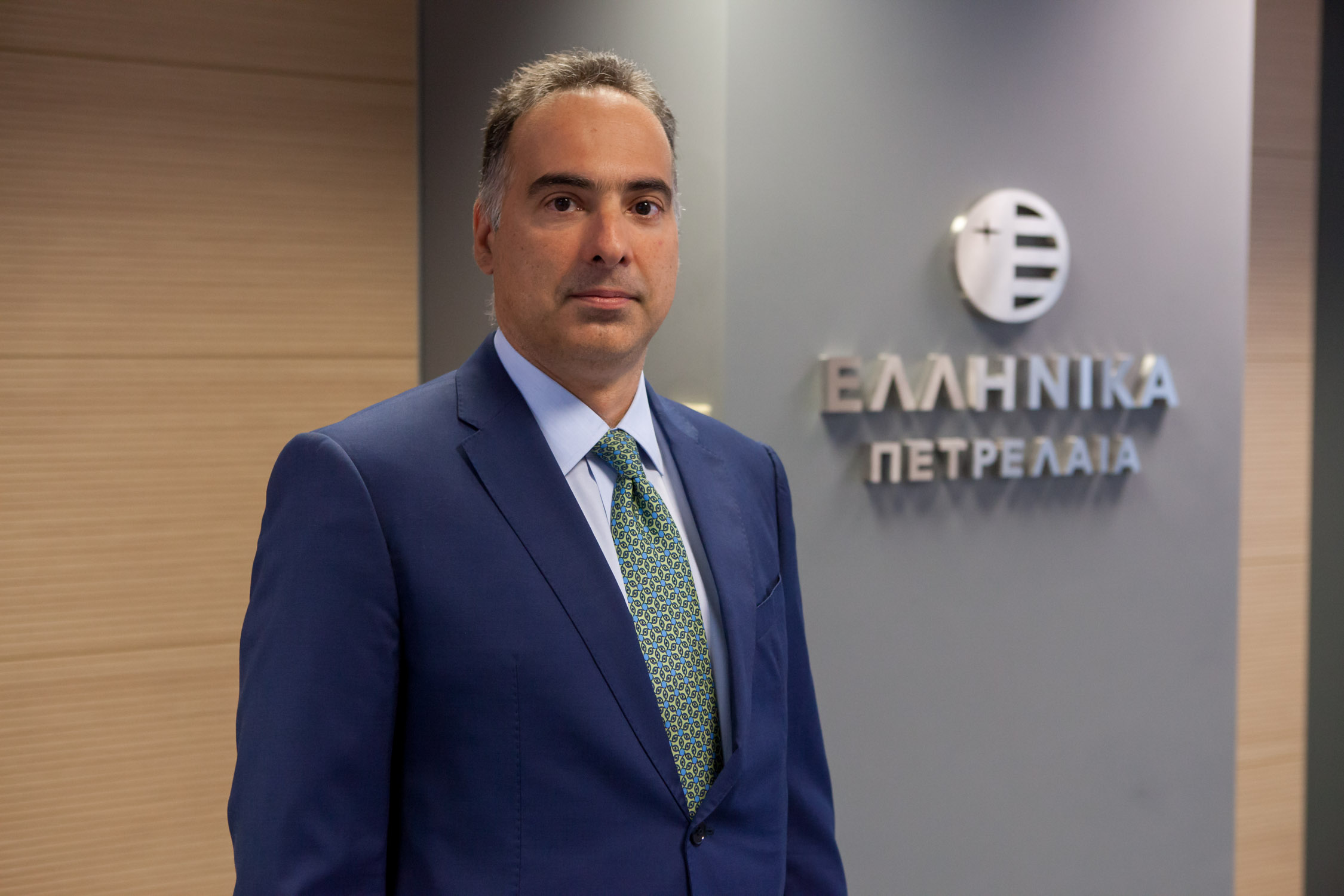 3 minutes
3 minutes
Mr. George Alexopoulos, General Manager of Group Strategic Planning & New Activities and Executive Member of the HELLENIC PETROLEUM S.A. BoD, presented yesterday the HELPE Group's strategy to achieve its energy transformation and conform to the European Union's objective to be climate-neutral by 2050, during the first working sessions of the two-day online "Green Liquid Fuels of the Future" Conference organized by the Institute of Energy for South-East Europe - IENE.
"It is clear that energy transition is picking up speed, affecting both our business activities and our operating models. To us, this development is an opportunity to transform the Group, by improving our core activities and also developing a diversified energy portfolio that will empower us to effectively face the challenges of the future", stressed Mr. Alexopoulos, adding that the HELPE Group is expeditiously implementing a thoroughly put together plan to meet its strategic goals by embracing new solutions and technologies.
According to the HELPE General Manager of Strategic Planning & New Activities, the Group's strategy revolves around the following main pillars:
- improving the Group's core activities, by boosting its competitiveness and its energy performance, as well as implementing its digital transformation;
- revisiting prior investments, implementing upgrades that will ensure added value; and
- differentiating the energy portfolio, providing the Group with a notable RES project portfolio, and enabling it to expand to the Electric Power & Natural Gas Supply sectors, while also allowing it to explore new opportunities related to the energy transition.
"In the context of its energy transition strategy, Hellenic Petroleum is investing in low carbon liquid fuels, an important element of climate change mitigation. We are decarbonizing our processes through focusing on energy efficiency, digitalization, and innovative technologies and, at the same time, decarbonizing our feedstocks by introducing bio-components and reusing waste streams, such as cooking oil and plastics, to make the Green Fuels of the future.” Mr. Alexopoulos affirmed, during the session on "The Transformation of the Industry and its Vision 2050".
In the words of Mr. Alexopoulos, the HELLENIC PETROLEUM Group is updating its strategic plan and considering its next investment projects, aiming at the transformation of its production processes as well as a large-scale production of low-carbon-footprint, "green" fuels.
According to Mr. Alexopoulos, the Group has set a goal to reduce energy consumption by 10% by 2030, also significantly reducing the environmental footprint of all of its 3 refineries. At the same time, it is actively pursuing its swift digital transformation, which should generate savings of €50m yearly.
Furthermore, the HELPE Group participates in research and innovation programs on low-carbon technologies, primarily focusing on 2nd and 3rd generation biofuels, green hydrogen production, waste recycling, and reuse technologies, storage infrastructure, and the creation of biorefineries.
Referring to the Group's RES & development strategy, Mr. Alexopoulos spoke of the "flagship” PV plant - with a total capacity of 204 MW and a budget of €130m - currently underway in Kozani, and assured that the Group will be able to meet its 300 MW installed capacity target, set for the end of 2021, as well as its overall 600 MW target by 2025, not only through its own organic growth but also through targeted acquisitions. As he said, all in all, the HELPE Group holds a diversified project portfolio amounting to more than 1.3 GW (PV, Wind Energy, Biomass), in various stages of development.
"There is no single technology, no single solution that will enable us to achieve our climate neutrality goals", concluded his speech the General Manager Group Strategic Planning & New Activities of HELPE, adding that the refining industry can be a decisive factor for the EU to achieve its goals of becoming climate-neutral. Provided, he went on to say, that the industry is supported in its production of low-carbon products (as is already the case with other, like-minded technologies), given that the investments required are both high and long-term and, as such, need a clear regulatory framework and stable taxation to come about.
